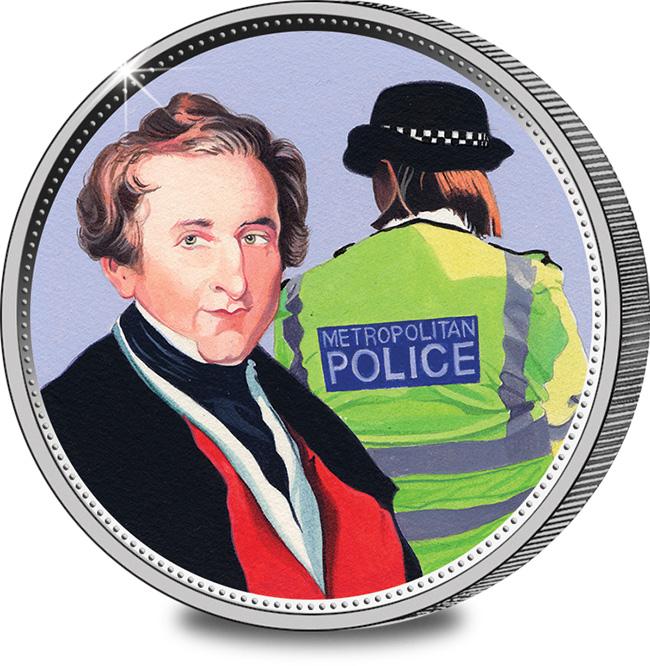
 |
Full name: Sir Robert Peel
Born: 5th February 1788
Invention/Achievement: The establishment
of the first Police Force in Britain
Date of
introduction/Achievement: 1829
Died: 2nd July 1850
|
The establishment of the Metropolitan Police by Sir Robert Peel
in 1829 can be seen as the first systematic approach to crime
prevention and detection in London and the United Kingdom.
In 1707 Edinburgh had established a Town Guard to police the
city and enforce the curfew. In 1749 Sir Henry Fielding
formed the Bow Street Runners to help enforce the law.
However, the establishment of the Metropolitan Police served
as a model for urban policing throughout England.
The Metropolitan Police Act of 1829 established a full-time,
professional and centrally organised police force for the greater
London area, excluding the City of London, covering an area of
seven miles radius from the centre, later extended to 15 miles,
directly responsible to the Home Secretary.
There was strong antipathy towards the idea of the military
policing civilians, so the police were not armed and wore
non-military uniforms.
Today there are 31,478 regular police officers in the
Metropolitan police force, supported by around 23,000 others,
including special constables, community support officers, and other
police staff, as well as 120 horses, 8,000 vehicles, three
helicopters and 22 river vessels. The initial budget for the
Metropolitan Police was £194,126 while in 2011/12 it was £3,692
million, over two thirds of which went on pay.
Robert Peel was one of the most influential politicians of the
19th century. As well as forming the Metropolitan
Police (called "bobbies", after Robert, or "peelers" after Peel) he
reformed and simplified the criminal law, reduced the number of
crimes punishable by death, and reformed the prison system.
He twice served as Prime Minister, first from 1834-35, second
from 1841-1846. He promoted Catholic Emancipation, which
removed laws restricting the rights of Catholics and supported the
Reform Act of 1832, which removed many abuses of the parliamentary
system.
During 1846, in the face of strong opposition from vested
interests, he pushed through the repeal of the Corn Laws in
response to famine in Ireland.
Peel can also be seen as the founder of the modern Conservative
party. He died on 2nd July 1850, aged 62, after a
riding accident.